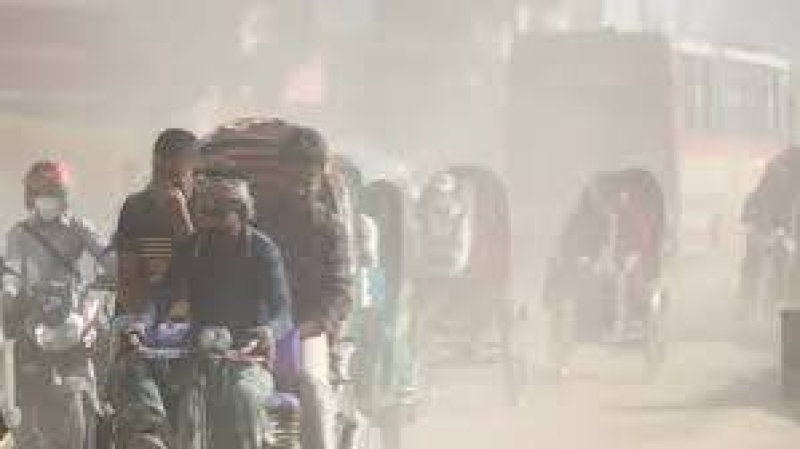- Leverage national consensus to sign basin-based water treaties |
- Parts of northern India scorched by extreme heat |
- Fire at Mutual Trust Bank branch in Dhaka |
- 9 killed as bus catches fire in India's Haryana |
- Flash floods kill 50 in western Afghanistan: police |
Dhaka’s air unhealthy for sensitive groups Saturday morning

Dhaka's air quality was categorised as ‘unhealthy for sensitive groups’ this morning. With an air quality index (AQI) score of 118 at 8:56 am, Dhaka ranked 11th on the list of cities worldwide with the worst air quality.
India’s Delhi, Nepal’s Kathmandu and Thailand’s Chiang Mai occupied the first three spots on the list, with AQI scores of 329, 210 and 180 respectively.
When the AQI value for particle pollution is between 101 and 150, air quality is considered ‘unhealthy for sensitive groups’, between 150 and 200 is ‘unhealthy’, between 201 and 300 is said to be 'very unhealthy', while a reading of 301+ is considered 'hazardous', posing serious health risks to residents.
The AQI, an index for reporting daily air quality, informs people how clean or polluted the air of a certain city is and what associated health effects might be a concern for them.
The AQI in Bangladesh is based on five pollutants: particulate matter (PM10 and PM2.5), NO2, CO, SO2, and ozone.
Dhaka has long been grappling with air pollution issues. Its air quality usually turns unhealthy in winter and improves during the monsoon.
As per World Health Organization (WHO), air pollution kills an estimated seven million people worldwide every year, mainly due to increased mortality from stroke, heart disease, chronic obstructive pulmonary disease, lung cancer, and acute respiratory infections, reports UNB.

